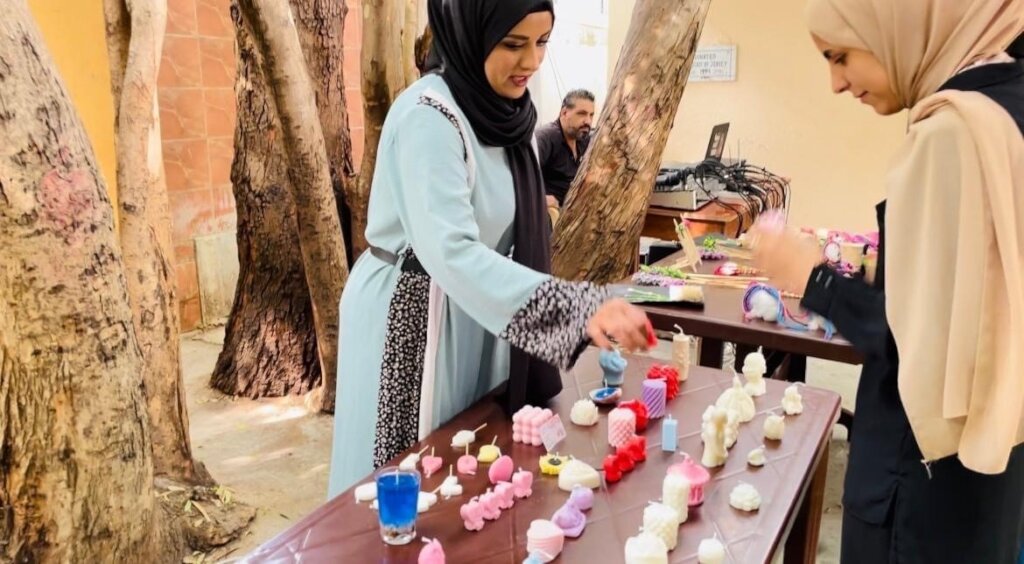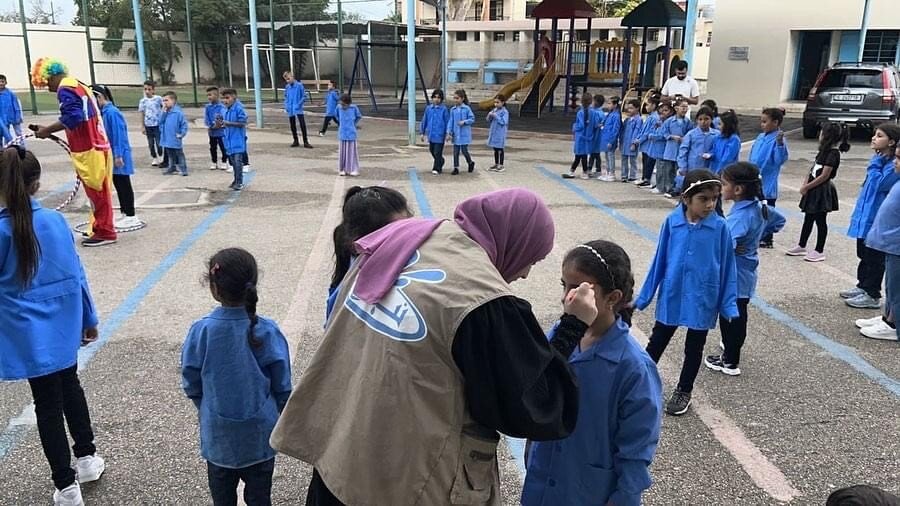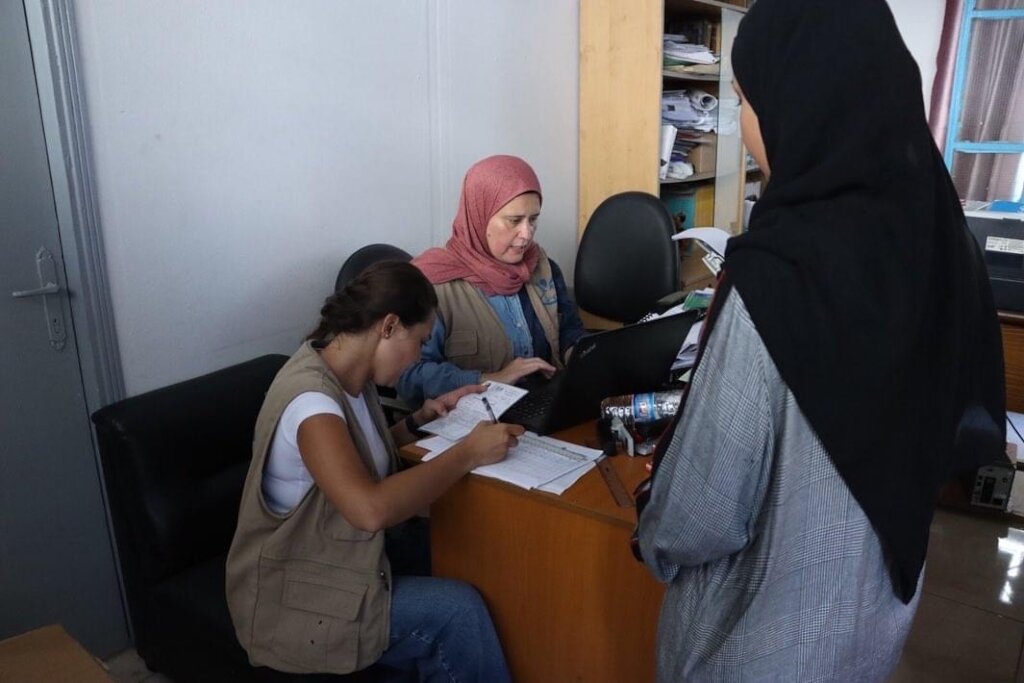By Hiba Hamzi | Program Coordinator
Background during and after the implementation of the project;
After conducting a field survey in the Bourj Hammoud area, the problems were identified and categorized as materialistic, social and psychological.
Materialistic problems: Before the explosion, the living and economic situation in Lebanon, in general and specifically, in Bourj Hammoud area already was not that good, and then the explosion occurred and caused the situation to deteriorate more. The losses were embodied by the destruction of homes, shops and private companies in addition to the inability of getting the basic needs for living (securing foodstuff ...) that were discovered through field and home visits by social workers in the Bourj Hammoud area, and this situation in turn has led to the emergence of many problems that fall under the social problems
Social problems: As a result of the materialistic losses that occurred in the region, the level of unemployment increased after the destruction of the work and livelihoods of the citizens, and thus led to the emergence of high cases below the poverty line.
In addition to the emergence of various cases of bullying, and violence that manifested in different forms between members of the society in general and the families specifically.
Psychological problems: all the factors that were previously mentioned, material and social problems, especially the explosion, which had a major role in the emergence of psychological problems and disorders for a large segment of the population of Burj Hammoud, which are manifested by the symptoms of several disorders like depression, post-traumatic stress disorder and panic attacks ... Where it appeared on individuals of different ages, whether they were children, adults, or elderly, it affected everyone who was near to the explosion.
Naba’a Achievements; During the last period, The most highlighted achievements during the last period;
-Art therapy sessions for children aged 6 to 10 years
- Psychosocial support "sessions for children "She deals or “I deal with awareness sessions for girls and boys from 11 to 14 years old
- Psychosocial support sessions for all age groups
Case Study;
Beneficiary profile
Notes: The beneficiary is currently married to someone else and has no children.
Economic and living situation of the beneficiary
Additional Observations on the Living Situation of the Case:
The living and economic situation of the beneficiary is terrible as the family of 8 members live in a house consisting of only 2 rooms which lacks the basic home furnishings.
Summary of the background/history of the beneficiary and the problems suffered from:
After observing the beneficiary’s situation through her participation in awareness sessions, she began talking openly about her situation among the Psycho Social Support group members (group of girls aged 14-20), where she talked about the consequences of early marriage that she faced and suffered from, as she was forcibly ordered by her father to marry a man when she was 15 years old. This early marriage shortly led to family problems and complications including constant insults to her by the husband's parents, leading her to divorce few months after her marriage.
Moreover, after her divorce, she received insults from her own family who considers divorce as a shame and a social defect, where the mother told her, "You are just a divorced girl and so you are with us to serve us."
All that has been addressed and said to her had led to the emergence of high-risk psychological symptoms.
Psychological and Social Symptoms Observed:
- Community isolation (spends days without communicating or meeting with a family or friend)
- Feelings of permanent sadness (most of the time)
- Constant crying
- Fear of facing people
- Loss of self-confidence and loss of trust in people
- Sleep disorders (insomnia)
- Eating disorders (anorexia)
- Nail biting
- Hair cutting (self-torture for revenge)
- Harming her body by cutting off her wrists and arms
Data Collection Method:
Data is collected through the psycho-social support sessions and awareness sessions given, as well as follow-up via the telephone and home visit.
Intervention and follow-up Methods:
Intervention was conducted in the following ways:
Recommendations:
- Follow-up meetings with the psychologist through individual sessions on a weekly basis
- Continue participating in the sessions that she had begun as a recommendation by the social worker and at the request of the beneficiary herself (awareness sessions, art therapy sessions, social psychological support sessions).
Links:
Project reports on GlobalGiving are posted directly to globalgiving.org by Project Leaders as they are completed, generally every 3-4 months. To protect the integrity of these documents, GlobalGiving does not alter them; therefore you may find some language or formatting issues.
If you donate to this project or have donated to this project, you can recieve an email when this project posts a report. You can also subscribe for reports without donating.
Support this important cause by creating a personalized fundraising page.
Start a Fundraiser

